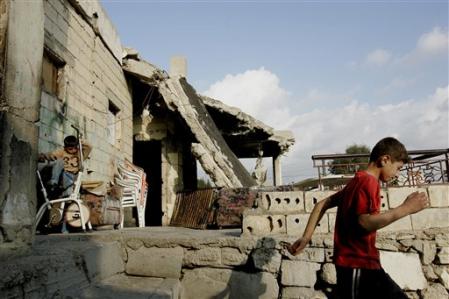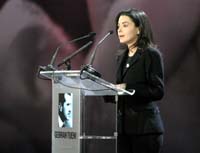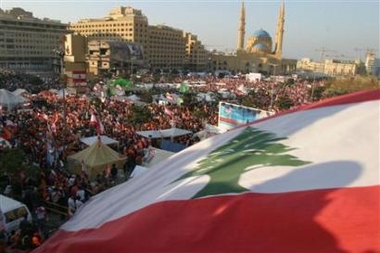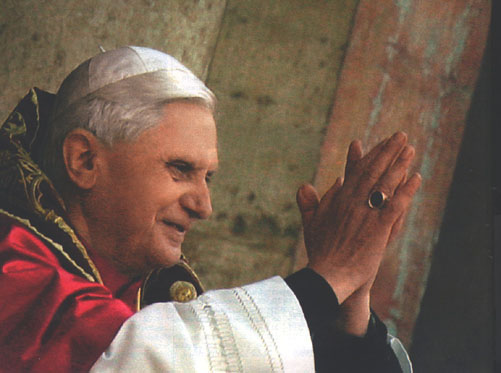 BEIRUT, 24 December (IRIN) - The lack of centralised, detailed development-related data in Lebanon has hampered the efficiency of emergency and rehabilitation efforts, humanitarian experts have said. "Information has been poorly coordinated, and although you can access, for instance, statistics on a given town or village via the municipality, there is no central mechanism to provide a global view of the different projects going on in Lebanon at any given time," said Rabih Bashour, coordinator for the relief and reconstruction committee at local NGO Al-Huda Society for Social Care.
BEIRUT, 24 December (IRIN) - The lack of centralised, detailed development-related data in Lebanon has hampered the efficiency of emergency and rehabilitation efforts, humanitarian experts have said. "Information has been poorly coordinated, and although you can access, for instance, statistics on a given town or village via the municipality, there is no central mechanism to provide a global view of the different projects going on in Lebanon at any given time," said Rabih Bashour, coordinator for the relief and reconstruction committee at local NGO Al-Huda Society for Social Care.
 Daily Star , BEIRUT: "Dialogue is the most important thing for Lebanon today," boomed the voice of late MP Gebran Tueni, recorded more than a year ago and aired Sunday at a conference commemorating the slain journalist's life and media freedoms in the Arab world. For a few brief moments Sunday, the MP and An-Nahar general manager came back to life in front of print journalists gathered to mark the first anniversary of his December 12, 2005 assassination in a car bombing.
Daily Star , BEIRUT: "Dialogue is the most important thing for Lebanon today," boomed the voice of late MP Gebran Tueni, recorded more than a year ago and aired Sunday at a conference commemorating the slain journalist's life and media freedoms in the Arab world. For a few brief moments Sunday, the MP and An-Nahar general manager came back to life in front of print journalists gathered to mark the first anniversary of his December 12, 2005 assassination in a car bombing.
"People accuse the Lebanese media of dividing Lebanon, but it is Lebanon's political leaders that have ripped the country apart," a taped interview from the 1980s showed a younger Tueni saying. A photo of recently assassinated Industry Minister Pierre Gemayel and Tueni smiling at each other evoked a standing ovation from the hundreds of attendees, including politicians - among whom was Yassin Jaber, representing Speaker Nabih Berri - religious leaders from all sects, and relatives of both Tueni and Gemayel. "I swear, there will never be another civil war in Lebanon," rang another clip from Tueni.
On cue, the late MP's daughter Nayla, who currently heads An-Nahar, appeared on stage to repeat her father's vow. "Good morning Gebran, good morning father," she said gently. "What are you doing now? Do you write and read like you usually do? Are you sitting with other martyrs discussing politics and the future?"
 Al-Jazeerah, December 10, 2006 The Lebanese opposition composed of supporters of Hizbullah, Amal, Michel Awn, Franjiyeh, and Talal Arslan staged their largest protest ever. Lebanese army officers estimated it as hundreds of thousands filling Riyadh Al-Sulh Square, Martyrs Square, and nearby streets, bringing Beirut to a standstill.
Al-Jazeerah, December 10, 2006 The Lebanese opposition composed of supporters of Hizbullah, Amal, Michel Awn, Franjiyeh, and Talal Arslan staged their largest protest ever. Lebanese army officers estimated it as hundreds of thousands filling Riyadh Al-Sulh Square, Martyrs Square, and nearby streets, bringing Beirut to a standstill.
General Michel Aoun threatened that the opposition would resort to different measures within days if Saniora government does not resign and form a unity government with the opposition.The Hizbullah representative, Shaikh Na'im Qassem, offered Saniora to join the Lebanese people by leaving the US camp. He asked Saniora to return a truck lauded with weapons confiscated during the Hizbullah war with Israel. He also asked him to resign if he wants to clear his name.
What's amazing about the continuous Lebanese opposition protest is that it is the same tactic used by US-backed groups in Eastern Europe and former Soviet Republics to overthrow elected governments. This time, it is the true national opposition using the same tactic to bring down a US-backed government.
 Rome, Dec. 11, 2006 (CWNews.com) - Pope Benedict XVI voiced his concerns about the Middle East, and particularly about Lebanon, during his Angelus audience on Sunday, December 10. Speaking to large crowd of about 40,000 people in St. Peter
Rome, Dec. 11, 2006 (CWNews.com) - Pope Benedict XVI voiced his concerns about the Middle East, and particularly about Lebanon, during his Angelus audience on Sunday, December 10. Speaking to large crowd of about 40,000 people in St. Peter
Khazen History


Historical Feature:
Churches and Monasteries of the Khazen family

St. Anthony of Padua Church in Ballouneh
Mar Abda Church in Bakaatit Kanaan
Saint Michael Church in Bkaatouta
Saint Therese Church in Qolayaat
Saint Simeon Stylites (مار سمعان العامودي) Church In Ajaltoun
Virgin Mary Church (سيدة المعونات) in Sheilé
Assumption of Mary Church in Ballouneh
1 - The sword of the Maronite Prince
2 - LES KHAZEN CONSULS DE FRANCE
3 - LES MARONITES & LES KHAZEN
4 - LES MAAN & LES KHAZEN
5 - ORIGINE DE LA FAMILLE
Population Movements to Keserwan - The Khazens and The Maans
ما جاء عن الثورة في المقاطعة الكسروانية
ثورة أهالي كسروان على المشايخ الخوازنة وأسبابها
Origins of the "Prince of Maronite" Title
Growing diversity: the Khazin sheiks and the clergy in the first decades of the 18th century
Historical Members:
Barbar Beik El Khazen [English]
Patriach Toubia Kaiss El Khazen(Biography & Life Part1 Part2) (Arabic)
Patriach Youssef Dargham El Khazen (Cont'd)
Cheikh Bishara Jafal El Khazen
Patriarch Youssef Raji El Khazen
The Martyrs Cheikh Philippe & Cheikh Farid El Khazen
Cheikh Nawfal El Khazen (Consul De France)
Cheikh Hossun El Khazen (Consul De France)
Cheikh Abou-Nawfal El Khazen (Consul De France)
Cheikh Francis Abee Nader & his son Yousef
Cheikh Abou-Kanso El Khazen (Consul De France)
Cheikh Abou Nader El Khazen
Cheikh Chafic El Khazen
Cheikh Keserwan El Khazen
Cheikh Serhal El Khazen [English]
Cheikh Rafiq El Khazen [English]
Cheikh Hanna El Khazen
Cheikha Arzi El Khazen
Marie El Khazen